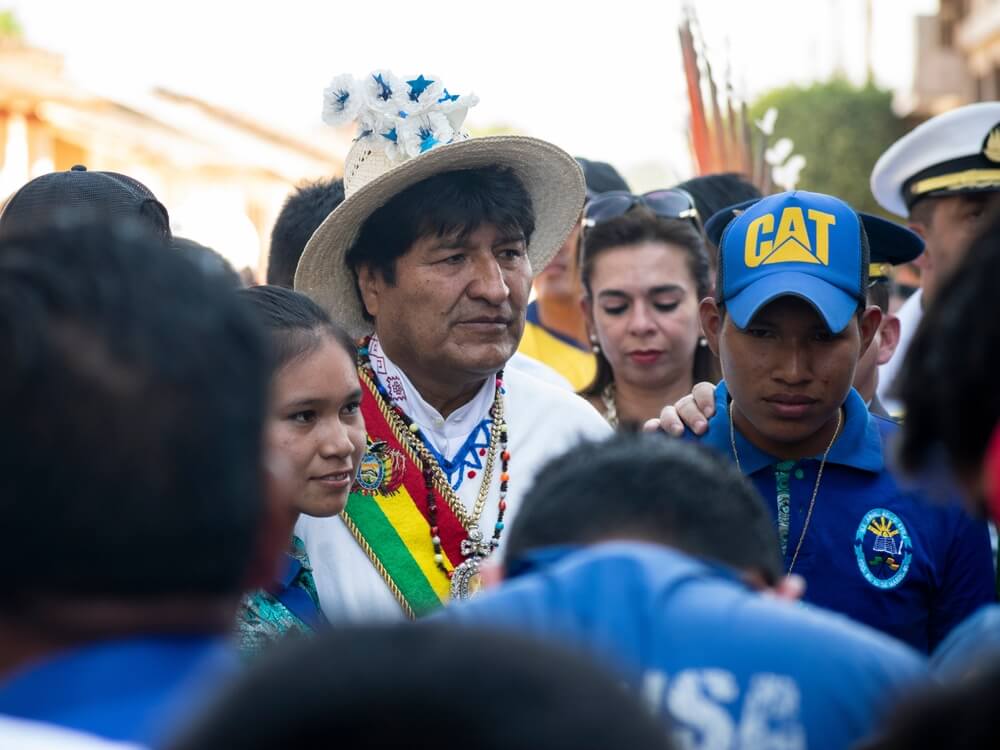Tradition indicates that what looked like a coup in Bolivia last Wednesday is very likely to happen again.
This world record holder for the number of coups has had around 190 in the independent state's 200-year history, and as many as 23 since 1950, 12 of which were unsuccessful.
This last one will join the ranks of numerous failed coups, although there is still little consensus about its true motives and even its consequences.
General Juan Jose Zuniga forced his way into the government palace in the main square in La Paz as, until recently, the Bolivian army's commander-in-chief and left it arrested on charges of organising a coup against President Luis Arce.
Many theories about the military action, which allegedly targeted the president and the government, centre on this officer with strong political leanings.
Of course, some of these are in the realm of conspiracy theories, which is characteristic of such events in Latin America. There are numerous local discussion participants on social networks who have no doubt that this was a CIA operation to overthrow Bolivia's socialist regime.
Did the president himself organise a coup?
In more serious media commentaries, however, there is much talk of a possible "self-coup," which is actually the work of President Arce himself.
The "coup leader" himself, General Zuniga, fuelled these rumours by referring to the president as his commander even during the brief period of his soldiers' action.
General Zuniga said that it was President Arce who had requested the coup attempt
At the same time, in a speech to journalists, the general said that it was President Arce who had requested the coup attempt.
“The president told me the situation is really messed up, this week is going to be critical — so it’s necessary to prepare something that will raise my popularity,” said General Zuniga shortly before he was to be arrested.
Socialist President Arce has understandably rejected such interpretations after General Zuniga's statement, but he is still a long way from using the coup attempt to his political advantage.
The threat called Evo Morales
Behind the confused attempt by part of the military to seize control over the government in La Paz are undoubtedly vested interests ahead of next year's presidential elections. They are "explosive" because the main struggle for supremacy takes place within the socialist camp of the ruling Movimiento al Socialismo (MAS).
Tensions have persisted since former Bolivian head of state Evo Morales announced his presidential candidacy for 2025 in September last year. This move intensified the rivalry with current President Arce, who was finance minister during Morales' rule.
 Support for the former populist leader Evo Morales is still strong throughout Bolivia
Support for the former populist leader Evo Morales is still strong throughout Bolivia
General Zuniga, the leader of yesterday's military action, had previously threatened that the military would take power in the country if Morales was allowed to run for president.
The crisis has been characterised by the mobilisation of Morales' radical supporters across the country, who have often set up roadblocks that the government has resisted. However, support for the former populist leader is still strong throughout Bolivia.
It was Morales who warned of the possibility of a coup shortly before it took place, giving the impression that he was not behind the military group that attempted the coup.
The current President Arce might have an interest in arranging a short-lived, harmless military coup that would pass without casualties. Something similar happened in the centre of La Paz on Wednesday.
President Arce feels threatened by the potential candidacy of Morales, his former boss, because he undoubtedly sees him as his strongest rival.
Economy on hold
However, Bolivia has much bigger problems than the personal enmity between the two opposing leaders of the ruling socialist bloc.
Estimated growth for this year and next is only about 2%, indicating a serious decline in the economy. This is the lowest level in the last quarter of a century, not counting the COVID-19 pandemic period.
However, Bolivia's socialist leadership is looking for a way out with its ideologically close alliances abroad. That is why President Arce recently participated in the economic forum in St. Petersburg, where he met Vladimir Putin.
Bolivia is a member of the Non-Aligned Movement, a bloc of developing countries under the strong influence of China and Russia, and last year submitted an official application to join the BRICS.
The unstable political situation, widespread corruption, and hostility towards Western investors make Bolivia's position with regard to lithium exploitation very unlikely
The Bolivian leadership wants to benefit from the enormous lithium reserves, estimated to be the largest in the world. However, these resources would be subject to specific conditions, meaning they would be out of the reach of Western companies.
“We must be united in the market, in a sovereign manner, with prices that benefit our economies,” said President Arce, one of those in favour of creating a "lithium OPEC" in Latin America.
However, the unstable political situation, widespread corruption, and hostility towards Western investors make Bolivia's position with regard to lithium exploitation very unlikely.
The coup attempt, or at least its staging, could favour one of the two candidates in next year's elections, but it will move Bolivia further away from the complete stability that the country lacks due to its complex and systemic economic problems.